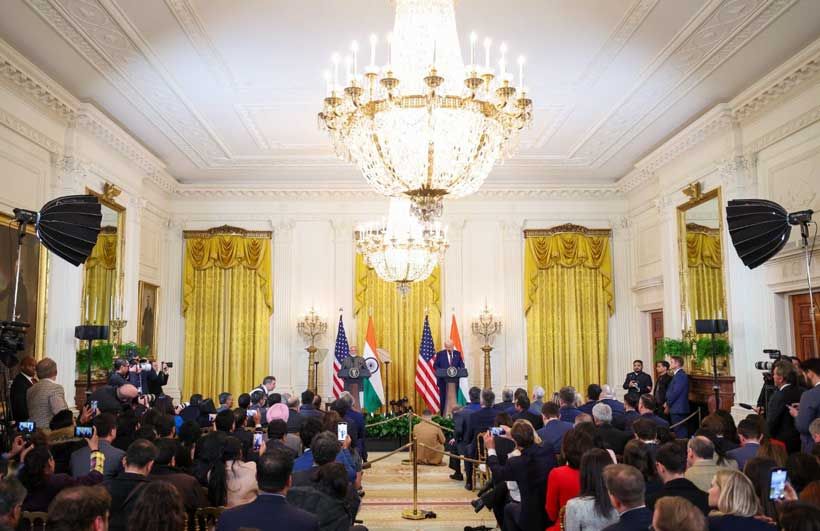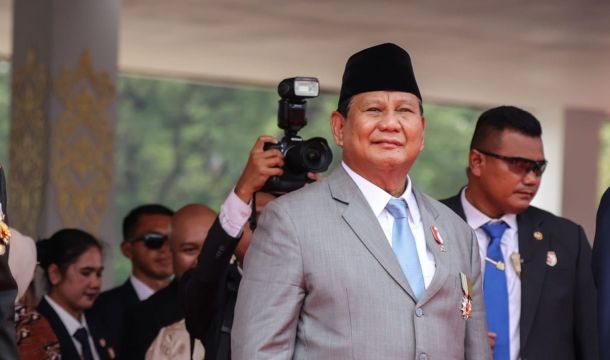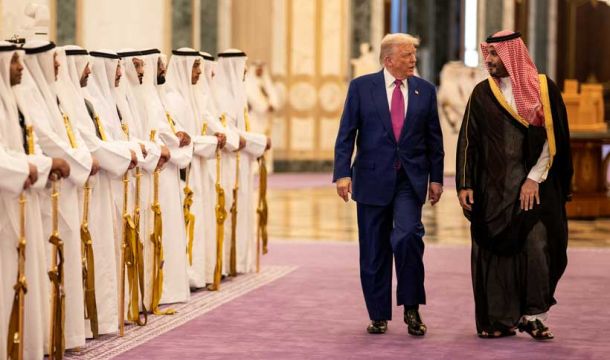U.S.-India Relations – More Rhetorical Flourish than Reality
Indian Prime Minister Narendra Modi’s embrace of Russian President Putin and warming relations with Chinese President Xi at the recent Shanghai Cooperation Organization (SCO) Summit in Tianjin, China, are not the result of President Trump recently imposing tariffs on India for their continued financial support of Moscow’s unprovoked war on Ukraine, but instead reveal the limits of a U.S.-India relationship that was always more promise and rhetorical flourish than reality.
The often-repeated phrase of America being the oldest and India being the largest democracy did not sway New Delhi to join with other democracies and stand up to Moscow, its long-time ally, when Russia started the largest war in Europe since World War II.
A senior Indian official pointed out to me that it was in India’s interest that Russia win and do so quickly so as not to see Moscow, its security partner, weakened or become more reliant on Beijing, with whom India continues to have security concerns.
Rather than joining with other democracies in Europe and Asia, India, whose own democracy has received increased criticism under Modi, chose war profiteering by increasing Russian oil imports and benefiting from a $17 billion windfall.
Improving relations with India, the most populous country and the 5th largest global economy, has been the pursuit of both Republican and Democratic administrations over the past two decades, with the goal to move an estranged relationship to a partnership. The Pentagon recast and reshaped the “Asia-Pacific” Command to the “Indo-Pacific” to elevate India and the Indian Ocean. The State Department created the South and Central Asian Bureau, with the National Security Council following suit. The initiative was meant to lavish greater focus on New Delhi in an effort to strengthen India’s reach beyond its immediate neighbors.
More recently, much hope has been placed in the Quadrilateral Security Dialogue (QUAD) among the United States, Japan, Australia, and India. However, in each of these enterprises the weak point continues to be India.
India sees the Indian Ocean in different geographic terms with a different set of priorities than does the U.S. Navy and other partners. India has failed in its ambition to project power into East Asia or the Middle East and can only do so in Central Asia with Moscow’s assistance. Hardly what the policy architects in the Bush Administration envisioned, whose desire was to elevate India and separate Central Asia from an historic dependence on Moscow.
As for the QUAD, the point of fragility is India. Officials in the other QUAD capitals see their counterparts in New Delhi as the least common denominator, failing to see their interests in countering Xi’s aggression directed at Taiwan, the South and East China Sea, or, for that matter, directly against other QUAD members, but would expect QUAD members to side with New Delhi and provide support if Beijing’s actions were directed against India.
This all follows disappointment and frustration in Washington over a lack of follow-through by India on the civil nuclear agreement and a more recent deal on military equipment.
India joined the SCO and became a founding member of BRICS, Beijing’s other pillar in its China-led new world order, before President Trump was elected. Modi accepted Xi’s invitation to join with him, Russian President Putin, Iranian President Pezeshkian, Belarusian President Lukashenko, Kazakh President Tokayev, and other leaders dependent on Xi and supportive of Putin, before President Trump doubled the tariffs on India.
India’s continued import of Russian oil should not be a surprise. India’s long history is that of a “non-aligned” country, one that tilted heavily towards the Soviet Union.
Today, New Delhi continues to place great value in its political, economic, and security relationship with Russia as well as Iran. Prioritizing a multipolar worldviewis limiting for India. If Washington were to afford New Delhi more favorable treatment, India would not necessarily respond by supporting policies important to Washington or other European and Asian democracies.
To get Putin to a point of negotiating a ceasefire requires greater sanctions on Russia’s continued oil revenue. We should not roll these back on India in hopes that India would pivot to Washington and stand up against unprovoked aggression, as some well-meaning experts suggest.
Rather, the oil sanctions should be expanded to China, Russia’s other prime customer. Reducing the revenues that flow to Moscow should be coupled with tighter restrictions on the Kremlin’s ability to obtain the war-fighting equipment and technology it continues to receive from other countries. Clamping down on this trade requires secondary sanctions to be imposed on China and the countries of the Russian-led Eurasian Economic Union.
With these two steps Russia would lose the lion’s share of both the revenue and equipment required to keep up the intensity, ruthlessness, and disregard for Ukrainian civilians and the well-being of its own troops.
Along with financial and military support for Kyiv, lifting restrictions so that Ukraine can target assets deep within Russian territory would increase coercive pressure on Putin to achieve a cease-fire.
We should be clear-eyed that India will pursue its interests as it assesses them. We should do the same and acknowledge that the relationship we have hoped for with India cannot solely be the result of our actions but is limited by India’s history, neighborhood, and how it assesses its interests, as disappointingly narrowly defined as they may be.
Source: https://moderndiplomacy.eu/2025/09/15/u-s-india-relations-more-rhetorical-flourish-than-reality


More press articles

Southeast Asia Can’t Hedge on the US-China Rivalry Forever

From Pariah to Partner: Can the U.S. Make Saudi Arabia a Real Ally?
